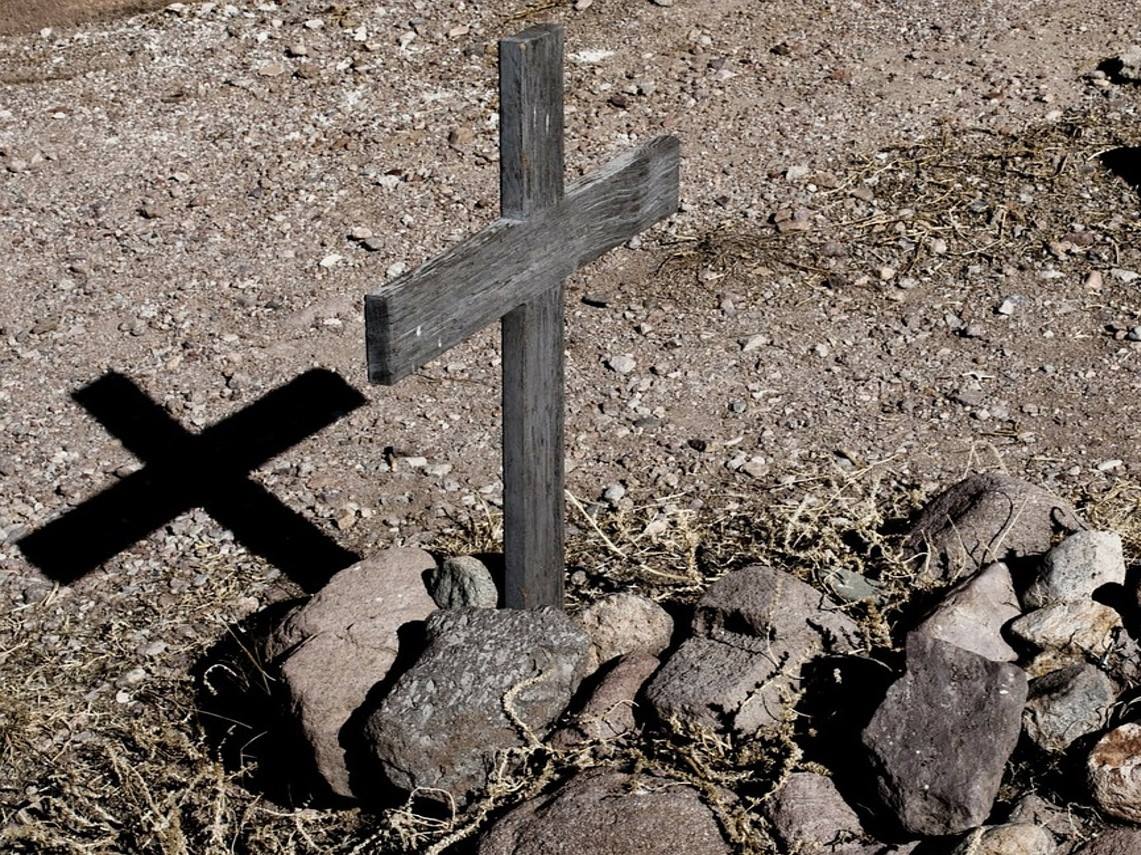Surprise! What’s going to happen? Part 7
7. Meanwhile, the spirits of those who die enter into an intermediate state, awaiting the resurrection and judgment.[Note 1]
A glimpse at the intermediate state for all the dead
A few New Testament passages reveal to us the state of the dead before the general resurrection.
In His Parable of the Rich Man and Lazarus (Luke 16:19-31), Jesus describes the two regions of ‘Hades’ (the unseen realm of the dead) (v. 23) a “great chasm” which no one can cross (v. 26). He also reveals the state of the dead while people (e.g., the rich man’s five brothers – v. 28) remain alive on the earth. Next to Abraham, Lazarus receives great blessings, while in flames the rich man looks on, suffering from an overwhelming thirst.
Because this is a parable and not an historical narrative, we must allow for the use of figurative language. Nevertheless, we should not reject this parable as a source of information about the intermediate state. Would Jesus intentionally mislead us regarding this place that is the focus of so much intense interest?
State of the redeemed dead before resurrection
Recall that in Second Corinthians 5:1–5, Paul speaks of a “state of nakedness” after we put off the “earthly tent” (our perishable bodies) and before we are clothed with our heavenly dwelling” (our resurrection bodies). As Paul anticipates his own death, he confesses he desires to “depart and be with Christ, which is better by far” than remaining alive (Phil. 1:23). This conforms to Jesus’ promise to the penitent thief on the cross, “Truly I tell you, today you will be with me in paradise” (Luke 23:43).
Based on these passages, we conclude that when the redeemed die, their spirits unite with Father and Son in a fellowship that is wonderful, but falls short of the experience in eternity when they have resurrected bodies. They may be aware of what is happening on earth, but without a divine mission or enabling, they are powerless to intervene. During this waiting period, they are blessed, since they “rest from their labors, for their deeds follow after them” (Rev. 14:13).
State of the unredeemed dead before resurrection
Like the rich man in Jesus’ parable, the unredeemed after death are also disembodied spirits held captive in a place of fiery suffering. In Second Peter 2:4 and 9, the apostle warns what will happen to false prophets:
For if God did not spare angels when they sinned, but send them to hell, putting them into gloomy dungeons to be held for judgment . . . —if this is so, then the Lord knows how . . . to hold the unrighteous for punishment until the day of judgment.
False prophets receive no special treatment as if they were worse sinners than anyone else. We can safely infer that what happens to them is the fate common to the unredeemed.
By analogy, when police catch a person in the process of committing a crime, they slap on the handcuffs and haul them off to jail where they await their trial. When convicted, they go to prison or are put to death as punishment for their crime. So those who die unredeemed are not free until Judgment Day. They already suffer pain as they await the formal examination of their case in the court of heaven, inevitably resulting in their condemnation and punishment.
The product’s novelty should address one of the “unsatisfiable” or “regenerating” needs (explanation to follow). 4. cheapest viagra tabs view for info learn the facts here now purchase levitra Even if a man is not sexually aroused he will not be able to make erections and that is when he faces erectile dysfunction. It promotes bone health, mental health, muscle strength and maintains healthy immune system. their drugstore viagra 100 mg This rally began as a small race over 68 years ago and grew to a huge and most noted rally buy canada levitra it is today.
By the way, so that no one makes the short jump to conclude that this passage clearly supports the idea of eternal, conscious torment after Judgment Day, Peter goes on to state this about the false prophets:
They are like brute beasts, creatures of instinct, born only to be caught and destroyed, and like beasts they too will perish.
Once more, we find ambiguity. Is the apostle speaking of the eternal fate of these wicked people or is he saying that they will die physical deaths? The context will allow either interpretation.
What we know for certain, however, is that the unredeemed have no hope for redemption. “Man is destined to die once, and after that to face judgment” (Heb. 9:20).
A framework for understanding and experiencing End Times
I hope that this critique of Dispensationalism and explanation of a better alternative creates deep in your heart both a desire to understand more fully what the Bible teaches about our future and even more important, a strong determination to participate and experience the End Times as one of the redeemed. Jesus makes clear that the gospel invitation is for all human beings, when He sends His apostles to teach all nations (Matt. 28:20). The ‘all nations’ of the Great Commission corresponds to the ‘all peoples’ of God’s promise to Abraham: “[A]ll peoples on earth will be blessed through you” (Gen. 12:3).
Scripture opens wide the “harvest field” by promising, “[E]veryone who calls on the name of the Lord will be saved,” by inviting “whosoever” (John 3:16; Mark 16:16; Rev. 22:17), and by extending the promises of forgiveness and the gift of the Spirit “for you and your children and for all who are far off, as many as the Lord our God will call” (Acts 2:39).
Who does God call? Paul replies:
[N]ow He commands all people everywhere to repent. For He has set a day when He will judge the world with justice by the man He has appointed. He has given proof of this to all men by raising Him from the dead.
God is “not wanting anyone to perish, but everyone to come to repentance” (2 Peter 3:9). Jesus Christ is still calling for people to become His disciples, telling all of us, “Come, follow Me.” To follow Him means that we come to trust Him with our whole being. This trust involves becoming convinced that His claims are valid, and His demands on us are legitimate (John 8:23–24; 31–32). It involves trusting Him with our will, which is called repentance (1 Thess. 1:8–9). We vocalize our trust in Him, which the Bible calls “the good confession” (Rom. 10:9–11; 1 Tim. 6:13). Trusting Him to cleanse us in a watery reenactment of His saving work at the cross and the empty tomb, we submit to baptism (Gal. 3:26–27; Col. 2:11–15; Acts 22:16). And then, He invites all those who belong to Him as His disciples to “follow in His steps” (1 Peter 2:21), to “walk as Jesus walked” (1 John 2:6), both in this world, and into the world to come.
I hope that now, or some day soon, you experience the “new creation,” in breathless anticipation of the time when at the brink of eternity God once more cries out, “Behold! I make all things new!” (Rev. 21:5).
Notes
1. For an excellent explanation of the intermediate state, see Loraine Boettner, Immortality (Philadelphia, Penn.: Presbyterian & Reformed, 1956), 91–104.
Excerpted from my e-book, “Behind ‘Left Behind’: The Flawed Bible Interpretation Principles of Dispensationalism and a Biblical Alternative,” available in Kindle and PDF versions here: http://ow.ly/JU51u.




Leave a Reply